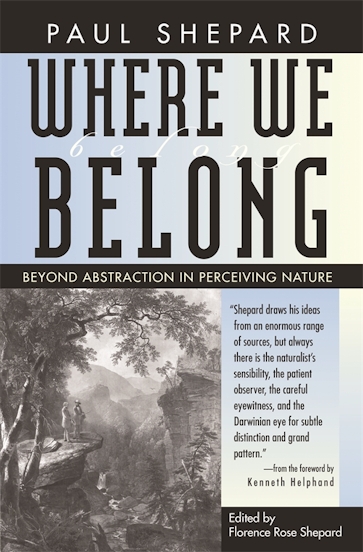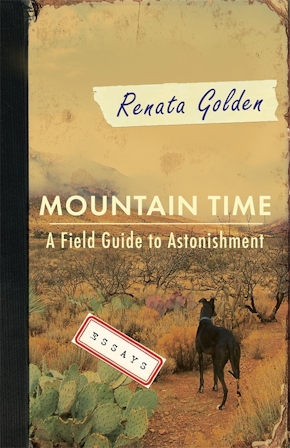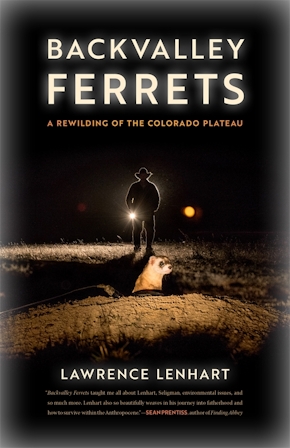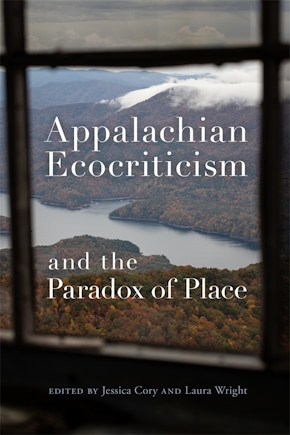Where We Belong
Beyond Abstraction in Perceiving Nature
Title Details
Pages: 280
Illustrations: 36 b&w photos
Trim size: 6.000in x 9.000in
Formats
Paperback
Pub Date: 04/01/2009
ISBN: 9-780-8203-3345-8
List Price: $30.95
Where We Belong
Beyond Abstraction in Perceiving Nature
Skip to
- Description
- Reviews
Gathered here in book form for the first time, the fourteen essays in Where We Belong exemplify Paul Shepard's interdisciplinary approach to human interaction with the natural world. Drawn from Shepard's entire career and presented chronologically, these pieces vary in setting from the Hudson River to the American prairie to New Zealand. Equally impressive is Shepard's spatial range, as he moves from subtle differences to grand designs, from the intimacy of an artist's brush stroke to a vista of the harsh Greek terrain.
Alluding to a range of sources from Star Trek to Marshall McLuhan to the Bible, the writings discuss such topics as the geomorphology of New England landscape paintings, beautification and conservation projects, the Oregon Trail, and tourism. Whether Shepard is pondering why the Great Plains conjured up sea imagery in early observers, or how pioneers often resorted to architectural terms—temple, castle, bridge, tower—when naming the West's natural formations, he exposes, and thus invites us to unshoulder, the cultural and historical baggage we bring to the act of seeing. Throughout the book, Shepard seeks the antecedents of environmental perception and questions whether the paradigm we inherited should be superseded by one that leads us to a greater concern for the health of the planet.
This volume is an important addition to Shepard's canon if only for the new view it offers of his intellectual development. More important, however, these selections demonstrate Shepard's grasp of a wide range of ideas related to the physical environment, including the various factors—historical, aesthetic, and psychological—that have shaped our attitudes toward the natural world and color the way we see it.
What is particularly striking about the selections in this anthology, especially the early essays, is Shepard's prescience in anticipating research and practice in art and ecology, cultural landscape studies, tourism studies, the body, environmental history, and the general concern for the intersection between the physical landscape and material world and the realm of ideas.
—Kenneth Helphand, from the foreword
Watching Shepard struggle to separate ideas about nature from the natural world—and, in the process, trace out the intricate connections between them—is enlightening. His essays are so erudite, his sources so wide-ranging, that it is impossible not to read these essays and see old problems in new ways.
—Environmental History
Every encounter with Paul Shepard's work challenges those of us who would envision sustainable lifeways to remember that the general good is the plea of the liar, the hypocrite, the scoundrel. The general good is Utopia, no place.
—Resurgence
Shepard's intellect was wide-ranging and his writing is strong, as this collection proves. His influence on the American environmental movement was an important one.
—Virginia Quarterly Review



